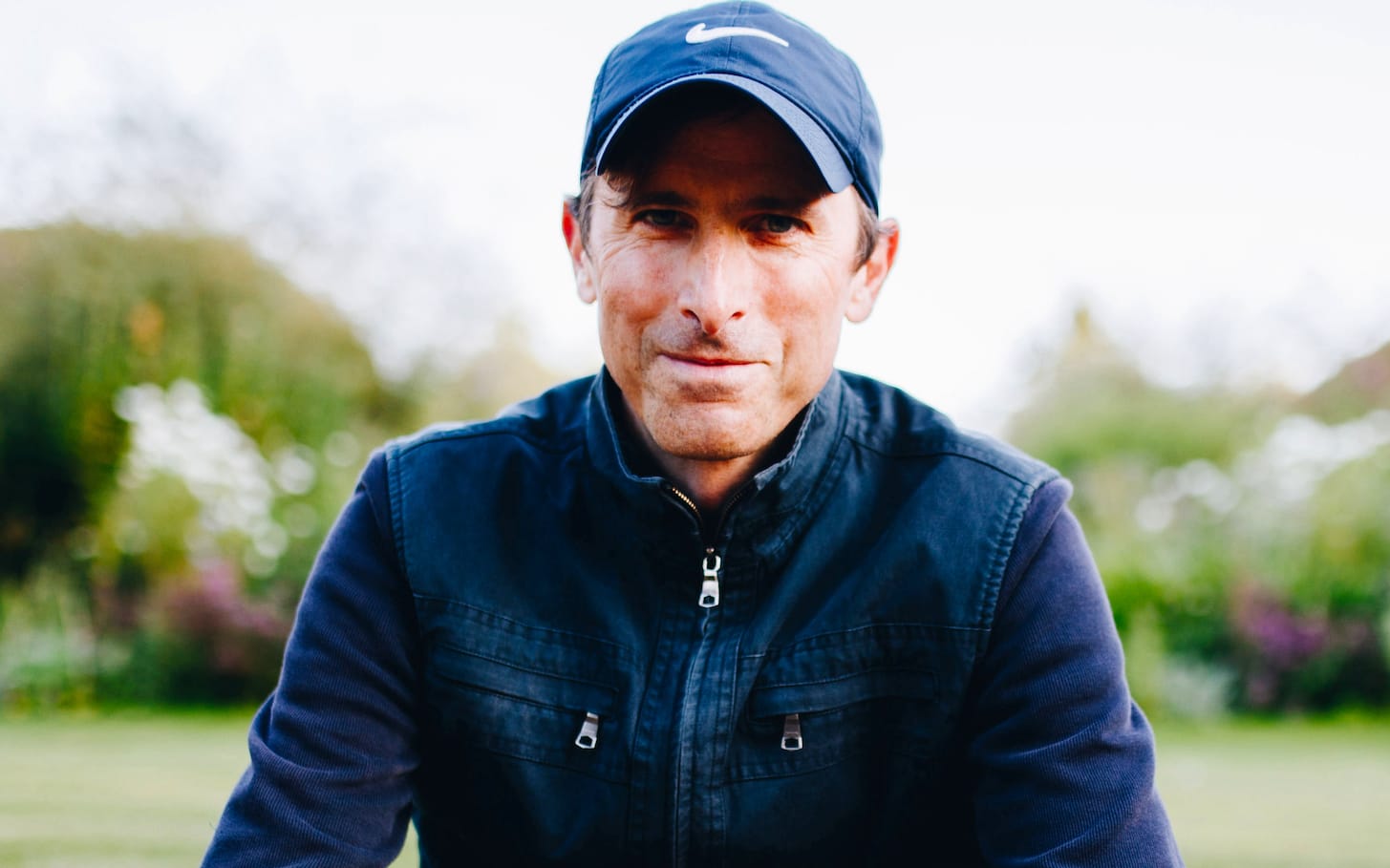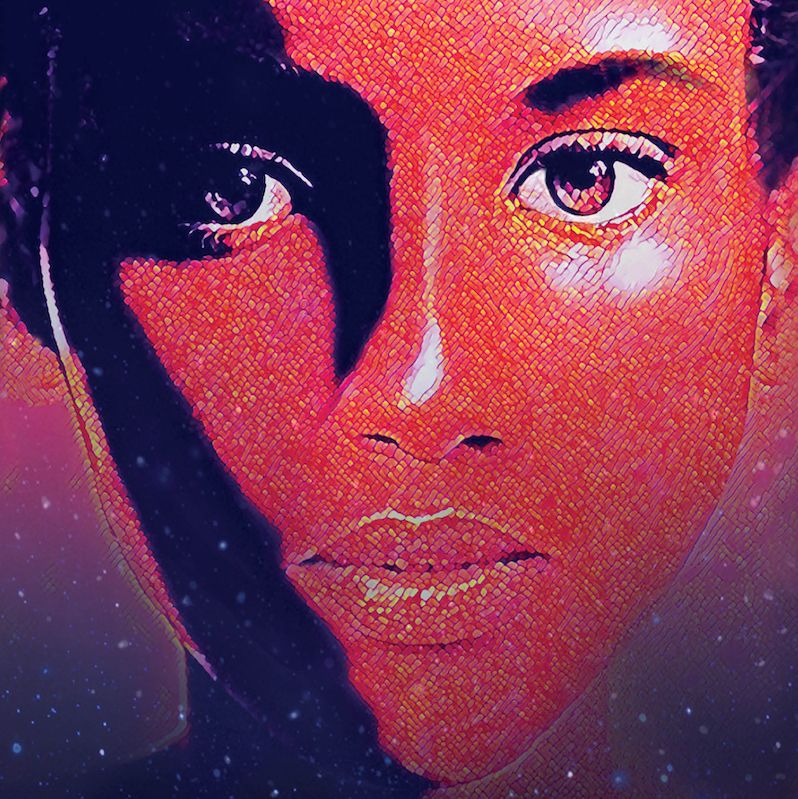
You love sci-fi, and you love outstanding concepts, so let's hook you up. Filmmaker and sci-fi/fantasy author John Huddles has a new book out, Asha Of The Air. It’s an utterly original mythology (and who even knew there was any original mythology left to write?), intermingled with philosophy, spirituality, and a unique hero’s quest—or in this case a heroine’s—that’s unlike any quest you’ve read about before.
Asha herself is beautiful, rich, and privileged, a half Black/half South Asian twenty-two-year-old who’s made some horrendous life choices in order to keep herself in diamond-dust shampoo and ensconced in a palace made of marble moons. She’s living large in the manner to which she became accustomed growing up and in a way that she doesn’t think she can do without anymore; but from the first page of her story, Asha’s bad decisions have already caught up with her. (Let’s just say marital rape, drug dependency, psychological abuse—and leave it at that.)
We're big on all things sci-fi/fantasy, so on that score alone Asha Of The Air merits a five-star review, not to mention Huddles’ gorgeous way with words; but the real reason for talking about it here is that, embedded within the story, though not the first thing you might think to comment on, is a pair of characters who counterpose toxic masculinity with masculine goodness—and do so in a way that dispenses with outdated archetypes, offering male readers something new, something germane to the times we’re living in, something worth modeling ourselves on in the real world of the 21st century.
A Secret for the Men
Yes, the title character is a young woman. Yes, teen girls and women in their twenties will find in Asha someone they can connect to emotionally. But trust me, this book, if not secretly written for you, contains a secret made for you: a way to be the kind of man that women need you to be, the kind of man that the universe rewards with the gifts of creativity, nobility, glory, and love.
If you’re into that sort of thing.
But first the plot. The book opens in a futuristic city levitating in the clouds, where an unnamed narrator tells the tale of his ancestor, Asha, who lived six thousand years in the past in a world that’s reminiscent of ancient India but is distinctly an emanation of the author’s mind. Huddles has constructed a mythology as immersive as Middle Earth in this shortish novel, drawing for verisimilitude on ancient Hindu sacred texts, the Hindi language, and the material culture of South Asia. Maybe because it’s an invention based on a reality, instead of so much fantasy content that seems based on tired clichés of European castles and damsels in distress, the story feels both inevitable and fresh at the same time. And explains why the worldbuilding is deep and airtight.
When the life of luxury that Asha has traded her dignity for explodes in violence and degradation, she’s left with two choices: die in her mind or break away and set out on the aforementioned quest—though “trek” might be more accurate, or “yaatra” in the language of the book—to try to find a new way of being. After months alone on a journey that’s equal parts physical feat and metaphorical CT scan of her thought-patterns, Asha makes it to the sky-lodge of the rulers of the “raajy,” a palace of eight thousand rooms built into a cliff overlooking the green waves of the Malachite Sea. In the sky-lodge, “Aakaash-Nivaas” as it’s called, things really take a turn for the fascinating.

What Asha is ultimately trying to do is find the inputs she needs to conceive a new archetype for herself, one that transcends the norms of gender and marriage while still embracing the rightful powers of femininity. Why is this relevant to the males among us, you ask? Because part of Asha’s process requires her to cogitate profoundly on, and come to terms with, the two men in her life. Even as she thinks about them in retrospect during the months of her yaatra, they show her the worst and the best of what being male means. I won’t get into the worst (i.e. Asha’s brutal husband, Cabaan, a merchant prince making bank by ripping up Asha’s late father’s forests of nature art and replacing them with plantings of a super-valuable though toxic-on-many-levels substance called “wolfram-wood”); but the other guy, the good guy, is worth a quick sketch.
Worth Linking Arms With
His name is Ilarô. He’s a kind of troubadour (a “geetakaar” in Bhaashan, the language of the raajy). In today’s terms we’d call him a singer-songwriter on tour, but what he can do with a lute in this story is practically supernatural (though very much science-based). The thing is, while Cabaan, the husband, is tall, strong, blond, and handsome to the point of distraction, on the inside he’s a degenerate. He takes over and controls Asha’s life to an unimaginable degree. Ilarô, by contrast, is short, physically unimpressive, someone you wouldn’t notice in a crowd; but on the inside he’s a kind of mind-master. The way he’s both there for Asha emotionally yet unwilling to tell her what to do to save herself is a revolutionary concept for her—and I think for us too. He shows her, and us, how to be brave but not cocky, wise but not proud, creative but not ego-driven, a musical prodigy who doesn’t take himself too seriously, a protector who never oversteps.
With the two men in her rear-view mirror during her yaatra, Asha has to reconcile not only what constitutes worthy womanhood for herself, but what constitutes manhood worth linking arms with. (Marriage or partnership or even just hooking up.) Which is exactly the conversation we’re all having today while we renegotiate the balance of power between the sexes and learn how to reconcile the urge to dominate with the need to love.
Two Men, Two Portraits
To be clear, this is Asha’s story: the men in her life are characters in her tale of self-exploration; she’s no appendage to their storyline. But in the telling of said tale, Huddles gives us two portraits in manliness, one monstrous (though sadly not uncommon in its lesser varieties in the real world), the other virtuous (in a way we can actually aspire to, even though its exemplar is one-in-a-million).
And the mythology of Asha Of The Air, to end where I started, is stellar. If Tolkien were alive today, he might’ve blurbed this book as “high fantasy that’s the gender-busting evolution of the form.” I’d be the first to concur.
For Huddles’ filmmaking, watch his sci-fi/fantasy flick, The Philosophers, praised by the Los Angeles Times as “unusually creative and ambitious … packed with smart, provocative ideas … impressively written and directed.” Available on Apple TV (or Amazon Prime under its non-U.S. title, After The Dark).

